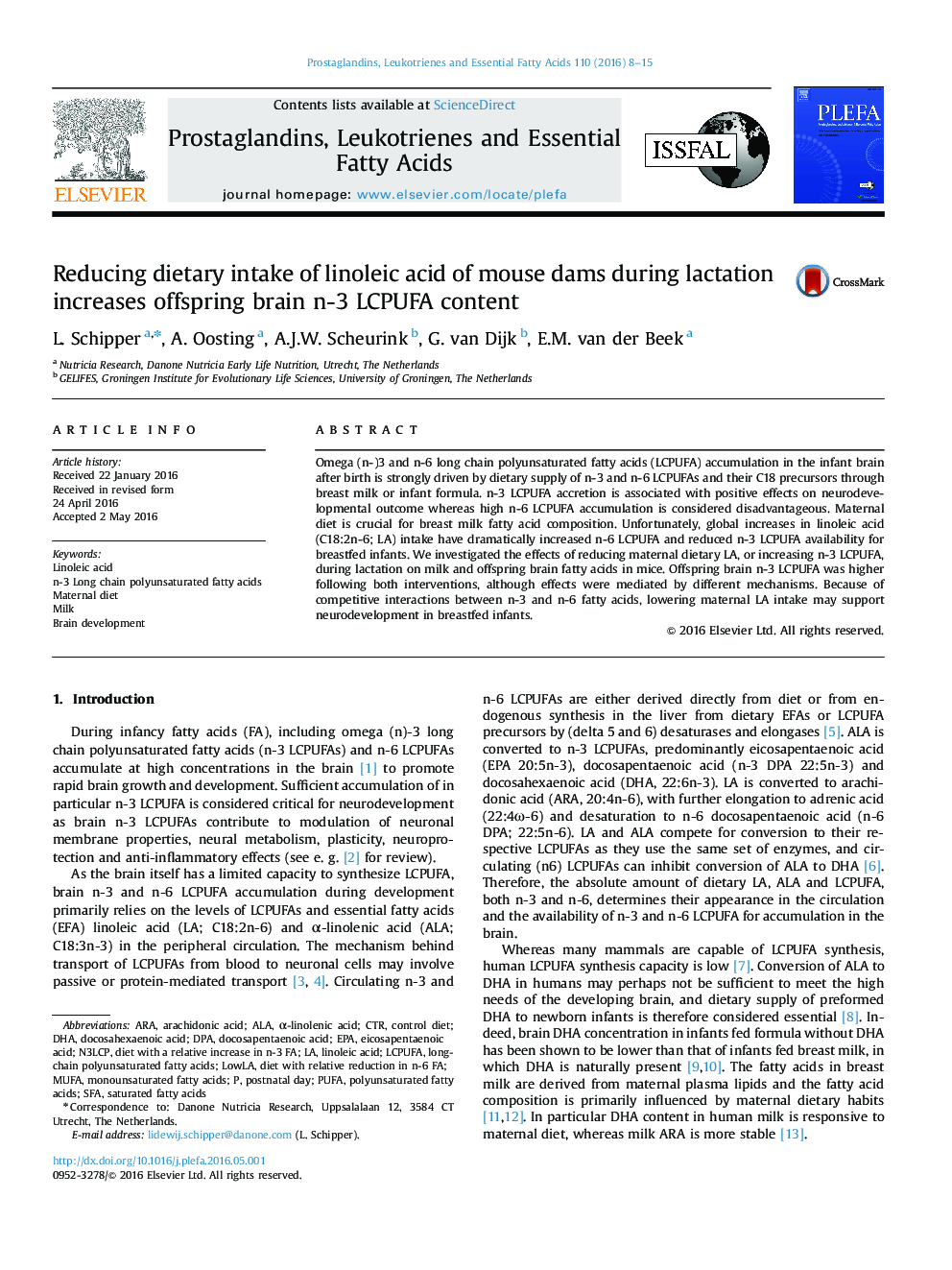| Article ID | Journal | Published Year | Pages | File Type |
|---|---|---|---|---|
| 2777445 | Prostaglandins, Leukotrienes and Essential Fatty Acids (PLEFA) | 2016 | 8 Pages |
•Reducing maternal dietary LA results in lower milk LA content.•Increasing maternal dietary n-3 LCPUFA increases milk n-3 LCPUFA content.•Offspring brain n-3 LCPUFA was higher following both interventions.
Omega (n-)3 and n-6 long chain polyunsaturated fatty acids (LCPUFA) accumulation in the infant brain after birth is strongly driven by dietary supply of n-3 and n-6 LCPUFAs and their C18 precursors through breast milk or infant formula. n-3 LCPUFA accretion is associated with positive effects on neurodevelopmental outcome whereas high n-6 LCPUFA accumulation is considered disadvantageous. Maternal diet is crucial for breast milk fatty acid composition. Unfortunately, global increases in linoleic acid (C18:2n-6; LA) intake have dramatically increased n-6 LCPUFA and reduced n-3 LCPUFA availability for breastfed infants. We investigated the effects of reducing maternal dietary LA, or increasing n-3 LCPUFA, during lactation on milk and offspring brain fatty acids in mice. Offspring brain n-3 LCPUFA was higher following both interventions, although effects were mediated by different mechanisms. Because of competitive interactions between n-3 and n-6 fatty acids, lowering maternal LA intake may support neurodevelopment in breastfed infants.
